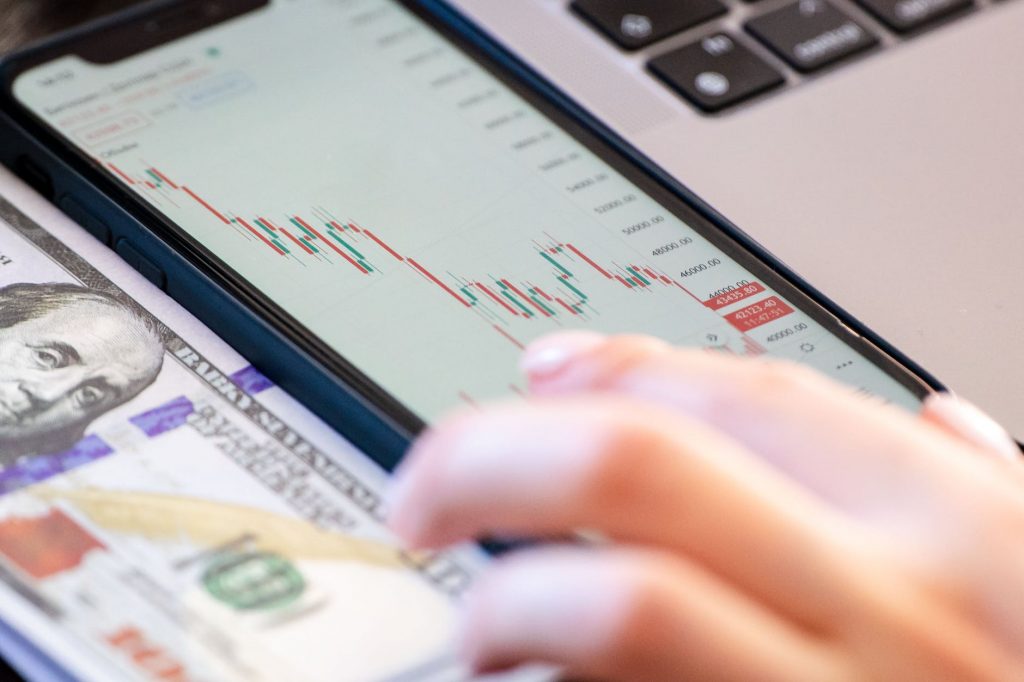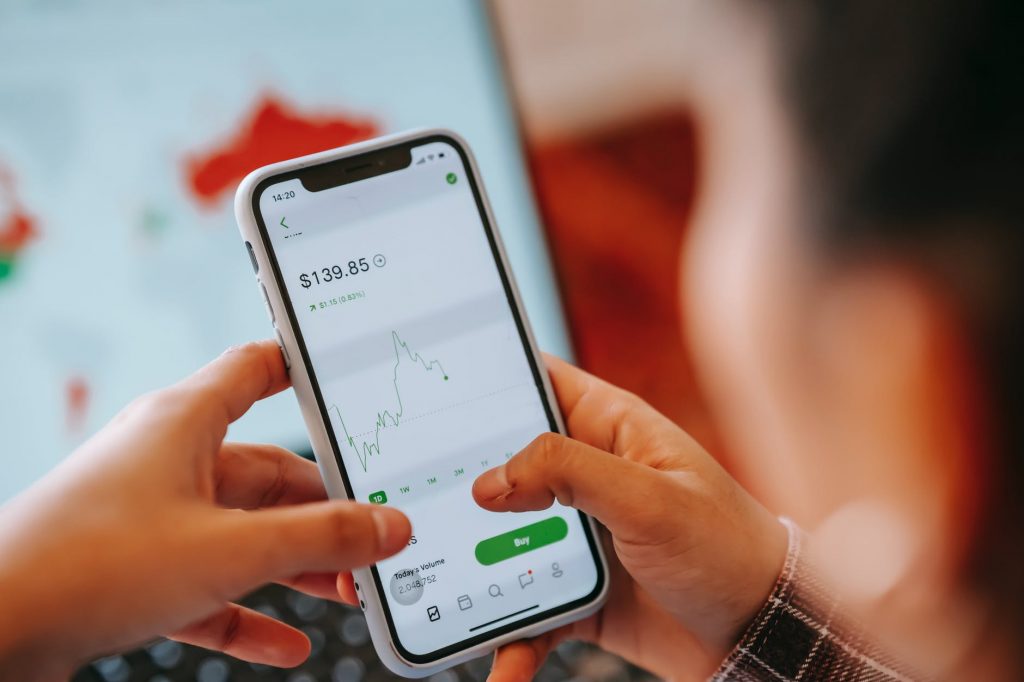Demat Accounts



A demat account is used to hold certificates of ownership for shares and securities in an electronic format. These accounts are mandatory for those in India and Nepal who want to invest in equities. However, non-resident Indians (NRIs) living in countries like the UK, the USA, Germany, and Qatar can also open demat accounts at Indian banks. In this guide, we cover everything you need to know about demat accounts as well as what dematerialization is. We also explain how to open and trade with a demat account online.
What is Dematerialization?
Dematerialization is the process where physical securities, like certificates for shares, are converted into an electronic format. These physical certificates are then removed and retired from circulation. Dematerialization is advantageous because it allows for more secure transactions. It also eliminates steps that would slow down the transaction process and reduces the risk of potential errors from the handling of physical certificates.
What is a Demat Account?
The straightforward definition is that an online demat account facilitates the holding of electronic shares and security certificates. It is used as a central solution to manage your investments in mutual funds, stocks, bonds, exchange-traded funds (ETFs), and government securities. Whenever you buy or sell an asset, your account is credited or debited with the certificates.
A wide range of banks in India and Nepal offer demat accounts because citizens must open one before they can trade on the stock market. Clients can begin trading and storing digital certificates once a full registration form is completed, all opening documents are submitted, and know your customer (KYC) verification is finished.
Most banks offer 3-in-1 demat accounts that include a dematerialization account, a trading account and a savings account. Fees vary across accounts and some offer zero annual maintenance charges (AMC) for the first year.

How Demat Accounts Work
Before computers, transactions at stock exchanges were conducted by traders on the floor, with deals recorded on paper receipts. As soon as the market closed, paperwork would continue to register all transactions. But through demat accounts, all this paperwork can be done away with. Following purchases and sales of stocks and securities, receipts and certificates are processed and stored in a digital format. This allows for easier transfers and more accurate tracking.
In India, three types of demat accounts are available: a regular demat account, a repatriable account and a non-repatriable account. The regular account is the most used and is available for residents of India. Repatriable and non-repatriable are designed for non-resident Indians (NRIs).
A repatriable account stores all deposited funds in a non-resident external account (NRE). Any funds stored in this account can be transferred abroad. Assets purchased are stored in the repatriable demat account. A non-repatriable account stores funds in a non-resident ordinary account (NRO). Funds in this account cannot be transferred abroad and investments from these funds are stored in the non-repatriable account.
Depositories
Demat accounts are maintained and regulated by set organizations in each country. They are known as depositories in India. When a client opens a dematerialization account and signs in with their login credentials, they receive a Depository Participant (DP) ID. The National Securities Depository Limited (NSDL) and Central Depository Services Limited (CDSL) maintain all accounts in India.
Benefits
One of the main benefits of demat accounts is that shares and securities can be transferred electronically. This means no physical paperwork is required and the transfer process for certificates is seamless. Furthermore, accounts are updated promptly and automatically.
Another benefit of demat accounts is that a trader’s assets are all stored in one place, like their stocks and shares certificates, mutual funds, government securities and bonds. This can help you keep track of investments across your portfolio.
Banks Offering Demat Accounts
Most of the main banks in India and Nepal give customers the option of opening a 3-in-1 or 2-in-1 demat account. Once the customer has completed the opening process and signed in with their login credentials, they are free to trade shares and securities.
Indians and NRIs can open online demat accounts with the State Bank of India (SBI), Icici, HDFC, Zerodha, Axis Bank, Union Bank, and Edelweiss. Residents in other countries like Nepal can open accounts with Nabil Bank, NIC Asia Bank, RBB Bank, and Everest Bank. Opening fees, transaction charges and yearly AMC rates vary between providers.

Pros
The main advantages of trading with demat accounts are:
- Joint holders/joint holding accounts are available
- Profit and loss is clearly indicated and managed
- Safe and secure way to store certificates
- Processes share transfers quickly
- No minimum lot size
- Reduces paperwork
Cons
Our review did also find some drawbacks of online demat accounts:
- Minimum two-day transfer time from demat account to bank account
- Lengthy opening procedures
- Opening fees are common
- AMC charges can be high
- Complex learning curve
What to Look for in a Demat Account
With so many different providers out there, it can be hard to know where to start. Our comparison guide can help you choose the best one:
- Details on Fees: Different providers in India and beyond will charge varying opening fees as well as annual maintenance charges (AMC). Compare each company, such as Zerodha, HDFC and SBI, and select one with a fee schedule that works for you.
- 3-in-1 Account: Check whether the provider offers a 3-in-1 or a 2-in-1 account. A 2-in-1 account comes with a demat and trading account, but no savings account. This makes the process of transferring funds much slower. Try to use a provider who offers all three.
- Mobile App: Find out if the firm supports a mobile trading application. An app makes it easier to track your demat account holdings while on the move.
- Customer Support: Good customer service ensures that any issues are resolved promptly. Check reviews online to see whether a provider offers 24/7 support and how accessible it is.
- Security: Don’t risk your assets being accessed remotely or your personal data being breached. Check the levels of security provided by each bank and select the one you feel comfortable with.
- Ease of Opening: Look into the steps and documents required to open a demat account. Try to select a bank that is thorough in its verification checks but does not take an unnecessarily long time to process new accounts.
- Types of Account: Check the different accounts available at each provider and if they suit your needs. For example, if you’re a non-resident Indian (NRI), make sure the company offers repatriable and non-repatriable accounts.
How to Open a Demat Account
Follow this step-by-step guide to open your demat account:
- Choose a provider (bank or broker) that is best for you based on the tips from our comparison guide above
- Complete the account opening form on the provider’s website
- Finish any know your customer (KYC) verification, submitting all required documents
- Complete the manual verification process either in person or via webcam
- Sign all agreement forms with the Depository Participant (DP). These will list the duties and rights of you and the DP
- Once your application is approved, you will receive your beneficial owner ID (BO ID). This is used to access your demat account. Note, you can start trading upon receipt
How to Buy Shares with a Demat Account
If you have a demat account and wish to start buying shares and securities, follow these steps:
- Select a swing trading broker with which to purchase the shares/securities
- Identify the specific assets that you want to purchase
- Make a payment to the broker for the shares/securities
- The securities should then be credited to your broker’s clearing account
- Next, the broker instructs the Depository Participant to debit the clearing account and credit the shares/securities to your demat account
- Once dematerialization is completed, the shares should be viewable in your online account
Bottom Line on Demat Accounts
A demat account removes the need for physical paperwork and facilitates the quick and seamless transfer of assets. If you live in certain countries, like India, you are required to hold a demat account to trade assets like stocks and bonds. Use our comparison guide above and questions below to find a provider, then follow our tips to get set up and start investing.
FAQ
Can I Have Two Demat Accounts?
It is possible to open multiple demat accounts at the same provider. The only requirement is that they each use a different Depository Participant (DP).
What Is The Best Bank For Demat Accounts In India?
There is no simple answer as to which bank offers the best demat accounts in India. Each bank has its advantages and disadvantages. Check our comparison guide to find a provider that meets your needs.
Can I Open A Demat Account Without An Aadhar Card?
Yes, you can open a demat account without an Aadhar card. The PAN card, on the other hand, is mandatory.
Where Can I Learn How To Buy Shares If I Have A Demat Account?
If you have a dematerialization account and want to buy shares, follow our easy guide. In addition, you can search online for videos and tutorials.
Can I Open Two Demat Accounts With Different Brokers?
Yes, a trader can open two or more demat accounts with different brokers. However, investors cannot open more than one account with the same broker or Depository Participant.
